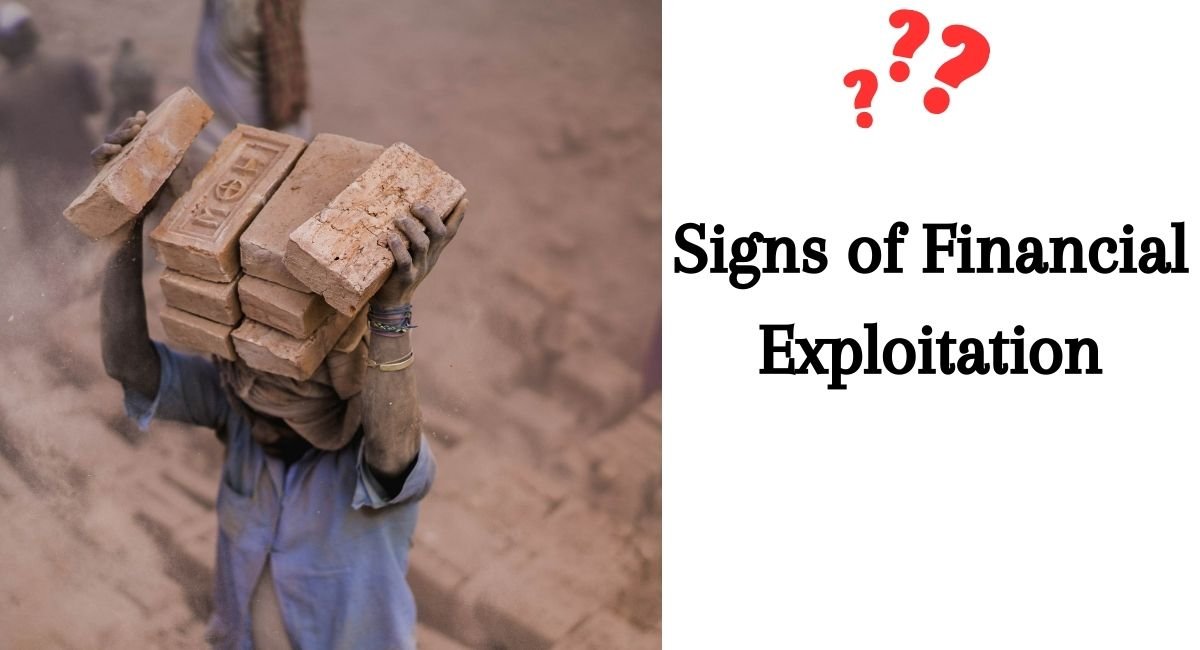Financial exploitation is when someone uses another person’s money or property without their consent. It can happen in many ways—through theft, manipulation, or deceit.
If you suspect this is happening, it’s important to know how to prove financial exploitation. With the right steps, you can gather evidence and take action.
In this guide, we’ll walk through how to prove financial exploitation. You’ll learn how to spot the signs and what to do if you need help.
What Is Financial Exploitation?
First, it’s important to understand what financial exploitation is. It happens when someone takes advantage of another person’s finances or assets without permission. This can happen through various methods—like stealing, tricking someone, or using manipulation.
Examples of financial exploitation include:
- Unauthorized withdrawals from the victim’s bank account
- Fraudulent credit card charges or using someone’s credit card without permission
- Deceptive financial transactions where the victim is tricked into signing over money or assets
- Scams, like fake lottery winnings or investment schemes
The most troubling part is that the person responsible for the exploitation may be someone the victim trusts, like a family member, caregiver, or even a close friend.
Signs of Financial Exploitation

It can be tough for victims of financial exploitation to recognize what’s happening. Often, they might not even realize that they’ve been taken advantage of until it’s too late. This is why spotting the signs early is so important.
Some signs of financial exploitation to look out for include:
- Unexplained withdrawals or transactions in bank accounts or credit cards
- Sudden changes in financial behavior, such as giving away large sums of money to others
- New debts that the victim is unaware of or never agreed to
- Suspicious transactions, like unfamiliar checks or bills that the victim didn’t authorize
- Changes in a will or estate plan that don’t seem to match the person’s wishes
- The victim becoming increasingly isolated or unable to make financial decisions due to manipulation or fear
If you notice these signs in someone, it’s crucial to investigate further. Financial exploitation often starts small, but it can snowball quickly.
How to Prove Financial Exploitation
Proving financial exploitation is not a simple task, but it can be done if you follow the right steps and gather the right evidence. Here’s what you need to do:
Step 1: Gather Financial Records
The most important step in proving financial exploitation is to collect all relevant financial records. These include:
- Bank statements showing any unusual withdrawals, transfers, or transactions
- Credit card statements with unfamiliar charges
- Checkbook records or online payment histories
Look for any discrepancies or unauthorized transactions. The more evidence you can gather, the stronger your case will be.
Step 2: Interview Relevant People
Talking to anyone who’s involved in the victim’s financial decisions is key. This could include:
- Family members
- Caregivers
- Friends
- Financial advisors
Ask them about any changes they’ve noticed in the victim’s finances or if they know anything about the suspicious transactions. Sometimes, simply talking to people can help uncover more details that weren’t initially obvious.
Step 3: Get Professional Help
Forensic accountants or financial experts can be a big help in proving financial exploitation. These professionals are skilled at looking through financial records to identify fraudulent transactions or suspicious patterns.
They can track where the money went, help pinpoint who took advantage of the victim, and even offer expert testimony in legal cases. Getting an expert involved can make a huge difference.
Step 4: Consult a Lawyer
Once you’ve gathered evidence, it’s time to get legal advice. A lawyer who specializes in elder law or financial exploitation can guide you through the process. They’ll help you understand:
- The laws in your state regarding financial abuse
- How to report the exploitation to the authorities
- What steps to take to recover any stolen funds
- How to protect the victim from future exploitation
A lawyer can also assist with filing a civil lawsuit if you’re seeking restitution or other legal remedies.
The Legal Side of Financial Exploitation
There are several laws designed to protect individuals from financial exploitation. These laws vary by state, but here are some general guidelines:
- Elder Abuse Laws: Many states have laws that specifically address financial exploitation of the elderly. These laws allow for both criminal prosecution and civil action.
- Adult Protective Services (APS): If the victim is an adult who is unable to care for themselves, APS can investigate claims of financial exploitation and intervene.
- Criminal and Civil Cases: Perpetrators of financial exploitation can face criminal charges such as theft or fraud. Victims may also file civil suits to recover damages or assets taken.
In some cases, proving financial exploitation may require demonstrating that the person responsible used manipulation, deception, or coercion to gain control over the victim’s finances. A lawyer can help you understand what evidence you need to meet the legal requirements.
How to Protect Yourself from Financial Exploitation
Preventing financial exploitation is always better than dealing with the aftermath. Here are some ways to protect yourself or your loved ones:
- Monitor financial accounts regularly to check for unauthorized transactions.
- Create a power of attorney or a financial guardian to help manage finances if necessary.
- Limit access to sensitive information like Social Security numbers, credit card details, and bank account numbers.
- Establish legal protections like a durable power of attorney, a living will, and an updated will that clearly defines who should handle your finances.
By taking these steps, you reduce the risk of becoming a victim of financial exploitation in the first place.
What to Do If You Suspect Financial Exploitation
If you believe that someone is being financially exploited, it’s important to act quickly. Here are the steps you should take:
- Report the exploitation: If the victim is elderly or vulnerable, report the situation to Adult Protective Services (APS) or another relevant local authority.
- Contact law enforcement: If you believe a crime has occurred, reach out to the police. They can investigate the situation and potentially press charges.
- Consult an attorney: A lawyer can help guide you through the process of recovering stolen funds and taking legal action against the perpetrator.
The quicker you act, the sooner you can stop the exploitation and begin to protect the victim from further harm.
Conclusion
Financial exploitation is a serious issue, but it can be stopped. By learning to spot the signs, gathering the right evidence, and seeking professional help, you can prove that exploitation is taking place and take steps to recover what was lost. Always act quickly and reach out for legal and professional assistance when needed.
Protecting yourself from financial exploitation starts with awareness and taking action. With the right steps, you can make sure that financial abuse doesn’t go unnoticed.
FAQ about How to prove financial exploitation
What is the first step if I suspect financial exploitation?
The first thing you should do is gather all relevant financial records and keep track of suspicious transactions. Then, consult with a lawyer or financial expert to help assess the situation.
Can a family member be held accountable for financial exploitation?
Yes, family members can be held accountable for financial exploitation, especially if they’ve used manipulation or deceit to gain control over the victim’s finances.
What happens if I can’t afford a lawyer to prove financial exploitation?
If you can’t afford a lawyer, there are legal aid services that may offer free or reduced-cost assistance.
How do I protect my elderly parent from financial exploitation?
Start by monitoring their finances, setting up alerts for transactions, and having regular conversations about their financial health.
Can financial exploitation affect someone’s credit?
Yes, if someone uses another person’s identity or finances without permission, it can negatively affect their credit score. .

